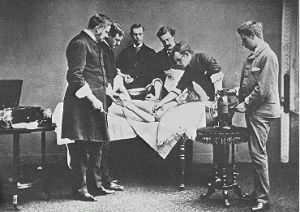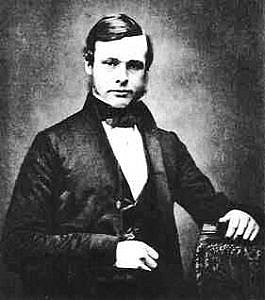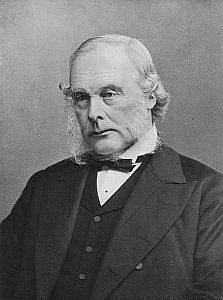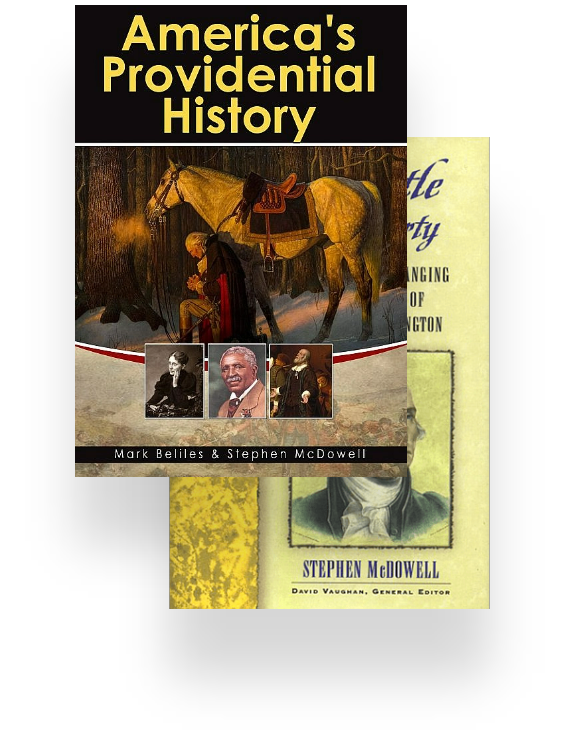PF UNIVERSITY

The Law of God — Our Life and Standard
The Bible repeatedly declares that God’s law-word is to be central in our life and society. To the extent that it is, things will go well for us. Deuteronomy 5:29 states: “Oh, that they had such a heart in them that they would fear Me and always keep all My commandments, that it might be well with them and with their children forever!”
This is God’s heart for us today, yet, too many of those who call Him Lord live in a different reality — that stated in Jeremiah 7: 23-24:
But this is what I commanded them saying, “Obey My voice, and I will be your God, and you will be My people; and you will walk in all the way which I commanded you, that it may be well with you.” Yet they did not obey or incline their ear, but walked in their own counsels and in the stubbornness of their evil heart, and went backward and not forward.
We have two options for our life. One, look to God as the source of truth and how to live our lives, obey what He commanded, and it will be well. Two, look to ourselves, to man or the state as the source of how to live, and walk accordingly. The result of this is that man will go backward. The latter describes the situation in the world today, but, sadly, it also describes the situation in much of the church. It describes as well the situation in the marketplace. If we obey God’s law, we will be blessed. If we disobey we will be cursed. This message is repeated more than any other message in the Bible.
As we apply His word, His government (or kingdom) comes to our lives, our families, our businesses, our nations, and to the earth. It goes well when this occurs. His Word speaks to all of life. God’s law brings life in many areas, touching all aspects of life that are needed today, such as: principles of warfare, penalties of criminals, laws of restitution, laws for provision for the poor, principles of taxation, principles of land usage, principles of building safe buildings, laws of cleanliness and sanitation.
Jesus taught that we are to occupy until He returns (Luke 19:11 ff). It is through our occupation that this will be carried out in a large degree. We must apply His Word to our occupation in order for us (and it) to succeed in fulfilling His desire of advancing His Kingdom in the earth.
God gave us His all-encompassing laws for our good. A study of the application of these laws in nations at various times in history reveals the blessings that God promised do come when we obey. These blessings are seen in the areas of civil and religious liberty, government, economics, business, and the medical field. Through applying Biblical principles of cleanliness, quarantine, and sanitation, Dr. Joseph Lister instituted a new era in the field of medicine, saved millions of lives, and brought an untold benefit to mankind.
The great accomplishments of Joseph Lister came about because he applied Biblical medical principles. The laws of God he applied included:
1. Cleanliness — cleansing after contact with those who have died (Num. 19:11-22; see also Num. 9:10; and scriptures given below). Aspects of these laws included:
Thus, separation from death was required of God’s people. This was symbolic as well as for practical health reasons.
Failure to adhere to God’s cleanliness principles is why 10% of pregnant women who went to hospitals in Europe in the middle 1800s to be examined died. Doctors went from doing autopsies to examining the women without washing.
2. Sanitation — cover excrement to prohibit spread of germs (Deut. 23:9-14).
Failure to adhere to this precept led to the Black Death spreading throughout Europe and killing tens of millions in 1348 and the few years following.
3. Quarantine — (Deut. 24:8; Lev. 13-15 [leprosy in the Bible included a variety of infectious diseases])
The laws of quarantine are an application of the sixth commandment, “you shall not murder,” with its positive corollary to preserve and further life. Some aspects of these laws included:
Joseph Lister was born in England in 1827 in a Christian (Quaker) home. The desires, skills, and character to be a surgeon were implanted in him from a young age. It was no surprise he pursued this study in college. While at University College he learned of the harsh realities of being a surgeon at this time. Infection and death were an everyday occurrence in the surgeon wards. About one out of every three people who underwent amputation died of a wound infection. As a medical student visiting the surgical wards, Lister heard the cries of patients, smelled the fetid odor of festering wounds, and observed the great number of deaths that were typical in that day. Surgery was a difficult and challenging profession, and was not held in high esteem in the medical field. Nonetheless, after four years of study, Lister took his Bachelor of Medicine in 1852 and passed the examinations for admission to the Royal College of Surgeons of England.
At the beginning of 1857, Lister performed his first operation before the students when his boss and mentor, Dr. Syme, was out of town. At this time surgeries were observed by many students as a means of learning. He wrote to his sister of the success of his “debut:”
The theatre was again well filled, and though I again felt a good deal before the operation, yet I lost all consciousness of the presence of the spectators during its performance, and did it exactly as if no one had been looking on. I feel, I may say, truly thankful I was able to go through it as I did. Just before the operation began, I recollected that there was only one Spectator whom it was important to consider, One present alike in the operating theatre and in the private room; and this consideration gave me increased firmness. . . .
I trust I may be enabled in the treatment of patients always to act with a single eye to their good, and therefore to the glory of our Heavenly Father. If a man is able to act in this spirit, and is favored to feel something of the sustaining love of God in his work, truly the practice of surgery is a glorious occupation. I may say I never felt better pleased with my profession than now.1
Lister recognized that any occupation is glorious if done in a Biblical manner. He understood what Jesus taught, that we are to occupy through our occupation, whether that be in the pulpit ministry, civil ministry, educational profession, medical profession, etc. God has called His people to impact all spheres of life and to use the talents and skills He has given to them to extend His kingdom in the earth.2 Lister saw his profession as a ministry of God, and he sought to conduct it in a Biblical manner. Lister taught his students that the two great requirements of a physician were “a warm, loving heart and truth in an earnest spirit.”3
From the beginning of Lister’s work as a house surgeon, he had been greatly bothered by the prevalence of wound infection on the surgical wards, which often led to the death of the patient. Witnessing this almost caused him to give up becoming a surgeon. Such infection was also prominent on Syme’s wards and his own. This
most occurred with those of open wounds, and almost always in those patients who were bedded close to others who had infection. It was as if some kind of
poison or something was being transmitted from one patient to another. Infection was greater in hospital wards than in homes. It would be best for patients to receive treatment and remain at home. But only the more affluent could afford to do so.
Personal cleanliness was not known then as it is today. Baths were taken much less frequently. Hospitals were usually less clean than homes. Surgeons and nurses went from patient to patient without even washing their hands. Surgeons performed operations in blood-stained coats, with the more stains indicative of greater experience. Their instruments were not washed before operations, only afterwards. They knew nothing of germs and how infection or diseases spread. They were not applying God’s principles of quarantine or cleanliness. The consequence was much pain, suffering, and death. As mentioned before, about 30% of patients died who were operated on and had open wounds.
Lister insisted upon cleanliness in his wards, requiring everyone to wash before and after treating wounds and to use clean towels. Those with open wounds must have their dressings changed frequently. Many saw this as extravagant, since it required so many clean towels and much effort to wash. Others ridiculed Lister for such action. Some said it was almost profane as he was trying to go against the decrees of the Almighty, who brought infirmity upon those as He willed. With all Lister’s efforts, though he saw a little progress, wound infection still remained rampant.
Before anesthesia, surgeons performed operations as rapidly as possible to reduce the time of great pain. This did not allow them to perform delicate, complicated surgeries. Even after anesthesia became common, many surgeons still operated very quickly, to demonstrate their “skills.” Lister, though, rejected such thought and over the years performed many complicated and time-consuming operations. While the operations were very successful, and his skills became known to many, a large percentage of his patients still developed gangrene and other infections. He regarded wound infection as “one of the greatest opprobia [disgraces] of modern surgery.”4
Lister had been conducting experiments to try to discover what caused the infections and had noticed that patients who did not have wounds exposed to the hospital air rarely became infected. He concluded that something in the hospital air caused putrefaction (rotting) of the wound, which was then followed by suppuration
(pussiness). But he did not know what this was.
One day his eyes were opened — “something like scales fell from his eyes,” in the words of the Bible — as he was reading a publication by a young French chemist. The reason for the putrefaction of wounds became clear to him through the “beautiful researches of Pasteur.”5
In 1856, Louis Pasteur had discovered that microbes caused fermentation. Living microscopic organisms — germs — were the cause of grape juice fermenting, and of the decomposition of certain substances such as meat. Accompanying this process, which was called putrefaction, was the development of foul-smelling gases. Pasteur showed that germs caused putrefaction. This was the beginning of the most far-reaching scientific development of the nineteenth century. His work revealed why God had given laws of quarantine and cleanliness to mankind. Long before man understood germs, God knew all about them.
Where did these germs originate? Did they come from parent cells or did they spontaneously generate? Many atheistic thinkers had proposed that life sprung from nothing, that there was spontaneous generation. Pasteur’s work proved that life can only come from life, no matter how small. All cells stemmed from parent cells. To the Christian thinker, the first cells were created by God, they did not come from nothing. He was the first life source.
Now that Lister knew that germs caused infection in patients, he knew what to attack. If he could prevent germs from getting into wounds, or kill them if they were there, he could stop the dreadful effects of their infection. He would devote the rest of his life to this treatment, but he would encounter many difficulties along the way.
In looking for an agent to kill germs Lister tried carbolic acid, which was discovered in the 1830s and had been used with success in treating sewage. He, of course, was looking for something that would not only kill germs but do so without damaging human tissue. The first patient upon whom Lister tried “antiseptic treatment,” was a man with a compound fracture. This attempt, in March of 1865, was not a success. It was months later before he was able to try this treatment again. A boy run over by a cart had a compound fracture with a large, deep wound. After setting the bone, Lister bandaged the leg with a diluted solution of carbolic acid. He was very careful to keep the wound bandaged for many days, well beyond the time where wounds would become infected. This boy healed without any major infection, which usually
accompanied such wounds. While encouraged, Lister knew this was not proof, for it could be that it would have healed on its own. A third attempt using this new antiseptic treatment was a semi-failure. After nine months he had no real knowledge of its usefulness.
In 1866 he had seven cases of compound fractures where he treated the patients with antiseptics. All had been severely injured. None developed great infection and none had to have their limbs amputated. Such success had not been seen before, and to Lister it was beyond chance. He reported his results in a major medical journal called the Lancet. He was presenting evidence that would revolutionize surgery forever. Yet, he was to discover the great difficulty men have had throughout history of introducing new ideas into various fields. Most physicians paid little attention to his new ideas. Some even attacked him, saying his theories were ridiculous. Lister had discovered a new principle — that germs are a cause of disease — but few people would even listen to him. It would take many years of suffering much ridicule before this began to change.
Lister continued treating wounds and also set out to show through many experiments that there are microscopic germs that cause putrefaction. Even though these were successful and presented strong evidence, English surgeons were slow to believe. Many would not even consider his teachings.
Before Lister’s antiseptic treatment, hospitals were commonly places of much infection and suffering. As Lister began to apply principles of cleanliness and his antiseptic system of treatment, the hospital ward of the Royal Infirmary that he oversaw became the most healthy of any ward in the world. He published a paper, entitled “On the Effects of the Antiseptic System of Treatment upon the Salubrity [healthfulness] of a Surgical Hospital,” presenting the dramatic effects. Before antiseptic treatment his patients had suffered from all the typical hospital diseases; yet, in the first nine months after introducing the new treatment, he had not had one case of gangrene, blood poisoning (pyemia), or erysipelas. In the years that followed he saw only an occasional case of infection.
His work would transform surgery, as his students recognized, writing, “Your method of Antiseptic Treatment constitutes a well-marked epoch in the history of British Surgery, and will result in lasting glory to the Profession, and unspeakable benefit to mankind.”6 Though this was true, he would experience strong opposition for years to come. But his determination and Christian character would sustain him as he pursued, what he said was, his “noble and holy calling.” A former critic, Professor Wood, said of Lister:
I do not know which to admire more — the scientific mind which has grasped a great principle and applied it, or the character of the man who has unswervingly pursued the object of his life, patiently perfecting, one by one, the means adapted to procure the end in view.7
Lister’s application of Biblical truth in the medical field brought what God said it would — blessing and life to mankind. This is one of many areas we could examine.[8] The people who have brought blessing, life, advancement, justice, peace, and true wealth, have been those who have applied God’s law-word to all areas. The commands of the supreme Law-Giver are true and produce life. We need to learn them and apply them. The result of neglecting God’s commands, in whatever area, is decay and death.
—
[Lister’s story, as well as that of John Wanamaker, is contained in the booklet, Transforming Medicine and Business with Biblical Principles, which can be ordered from our store (see link below).]
Kingdom businesses are much more than businesses run by Christians with the goal to preach Christ and see people converted. Ken Eldred gives this definition: “Kingdom business is for-profit business ventures designed to facilitate God’s transformation of people and nations.”9 What would a Kingdom business look like? Following are ten characteristics of Kingdom business.
To learn “Ten Characteristics of Kingdom Business” and how John Wanamaker exemplified these characteristics and transformed business order a copy of the booklet, Transforming Medicine and Business with Biblical Principles.
Become a Member of the Providence Foundation (by financially supporting us) and we will send similar booklets and materials to you on a regular basis; plus you will have access to these and other materials online through Member benefits.
End Notes
1. Laurence Farmer, Master Surgeon, A Biography of Joseph
Lister, New York: Harper & Row, 1962, pp. 28-29.
2. See Luke 19:11-27, the parable of the minas, and further
explanation in Stephen McDowell, Building Godly Nations, Charlottesville, Vir.:
Providence Foundation, 2004, Chapters 1, 3.
3. Farmer, p. 34.
4. Farmer, p. 45.
5. Farmer, p. 46.
6. Farmer, p. 121.
7. Farmer, p. 115.
8. For other examples, see Building Godly Nations,
especially Chapter 1 and 14; America’s Providential History; In God We Trust
Tour Guide, Section 3 (on William Penn); and past Providential Perspectives on
Matthew Fontaine Maury and Marcus and Narcissa Whitman.
9. Ken Eldred, God Is at Work, Ventura, Cal.: Regal Books,
2005, p. 60. For another great example of a Kingdom businessman see “Biblical
Principles of Business — Exemplified by Cyrus McCormick,” in Building Godly
Nations, Chapter 14.
PF UNIVERSITY
The courses offered by the Providence Foundation Biblical Worldview University (BWU) are designed to equip leaders of education, business, and politics to transform their culture for Christ, and to train all citizens how to disciple nations.
DONATE
Support Providence Foundation today! Choose Minuteman, Patriot, or Founder level and make a monthly impact. Or select ‘Custom’ to contribute now. Join us in shaping our nation’s future
